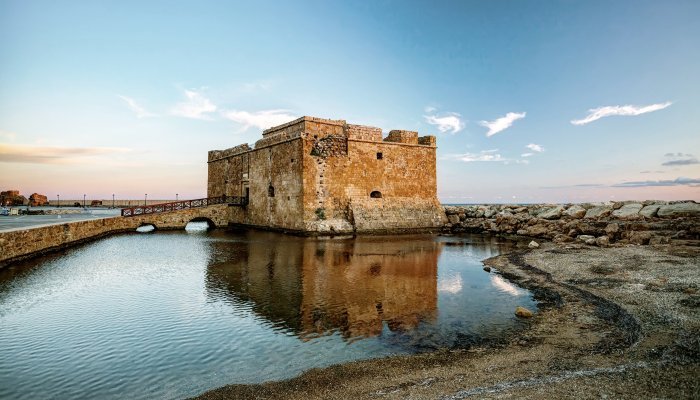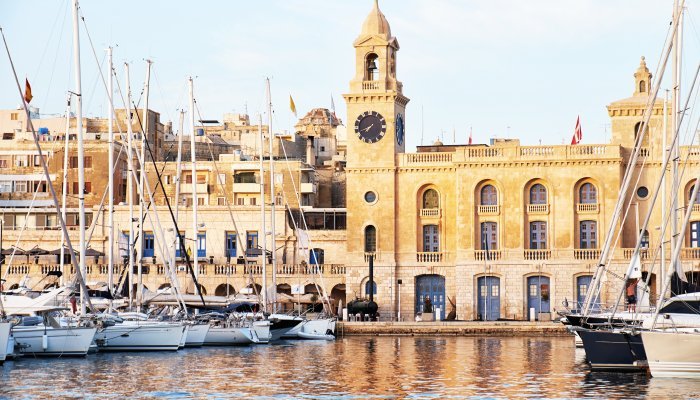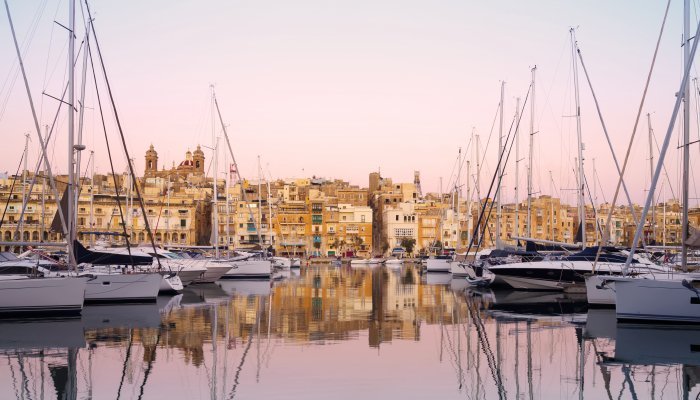Have you seen the news lately? It seems as though not a day goes by without us being bombarded with updates about the rise of nationalism around an increasingly fragile world. But as countries under strain increase borders and barriers with visa restrictions and travel bans, many people are trapped in challenging situations that are far from ideal.
“Educated and financially independent people want to be part of a progressive global economy and not restricted by their citizenship of birth,” says Nigel Barnes, Managing Partner of Henley & Partners South Africa, a global leader in residence and citizenship planning. “And we’ve seen that corruption and civil war have brought out a new class of economic asylum seekers wanting to escape impossible domestic circumstances.”
And yet some people struggle to pursue better opportunities abroad. Barnes cites the example of someone from the Middle East or Central Africa having limited options when it comes to mobility. But while none of us has control over where we happen to be born, people who aren’t as lucky as others are taking matters into their own hands.
“We’re born where we’re born and that becomes our citizenship,” he says. “Some people are more fortunate than others but, dependent upon their passport, certain individuals born in certain countries have a ceiling of opportunity in terms of how that particular citizenship might work for them in areas like travelling and business. All of these key components are making talented and wealthy individuals look at their options and their situation.”
The quality of nationalities worldwide
As a business, Henley & Partners helps individuals and families look at the options that exist around the world that can allow them to obtain another citizenship or residency and therefore take away the ceiling of opportunity. That assistance works in different ways: talking to clients in one-on-one consultations, running global citizenship seminars all around the world, and developing publications like the Quality of Nationality Index.
The ranking is based on internal factors (economic strength, human development, peace and stability) as well as external ones (travel freedom and settlement freedom). Germany, as in most things, is ranked first in the latest edition, with over two dozen other European countries following before the list reaches the United States (ranked 29th). South Africa is ranked 87th, two positions below Kazakhstan.
“We believe that the ability to invest into another jurisdiction and receive citizenship in return is a good idea,” Barnes says. “That’s why we’ve created and pioneered this business and this industry. Some don’t believe it’s a good idea but the figures will tell us – and the interest we’re receiving from people around the world will tell us – that it’s something people are focused on.”
Visa-free travel and settlement freedom
In the last two decades, Henley & Partners has worked closely with governments around the world in building and re-engineering its citizenship and residency programmes. Barnes believes that it’s this extensive analysis and due diligence that gives the business its edge.
“It’s a big component and strong reason to work with us as a firm because we have that understanding,” he says. “And in terms of citizenship programmes that are available around the world, the European and Caribbean programmes are the ones that we believe have real credibility. They offer strong opportunities.”
The Caribbean, where the focus has been on clients looking for a better travel document, has historically driven the citizenship-by-investment business. But the spotlight is shifting to Europe, whose citizens enjoy visa-free travel to all the prime business and lifestyle destinations around the world as well as settlement freedom across member states.
“This is particularly interesting for our clients as a family planning option because your children will have the right to live, work or study anywhere in Europe,” says Dominic Volek, Head of Henley & Partners in South-East Asia. “For example, I have a Japanese client who lived in Hong Kong, has a Maltese passport, and is now living in the south of France. This is the access these passports give you.”
The underlying credibility of the investment
And yet this access comes at a cost. While the South African government does allow dual citizenship (provided all applicants over 18 years old are granted permission to retain their South African citizenship before they acquire another one), citizenship-by-investment demands a level of capital that rules out most individuals. For example, Cyprus requires an investment of at least €2 million in real estate, Cypriot businesses, alternative investment funds or some combination of the three. For Malta, the main applicant’s contribution is €650 000, with additional amounts required for spouses, financially dependent children, and parents under the main applicant’s support.
“The reality is that a lot of people will pay a lot of money for these things,” says Chris Immelman, Managing Director of Pam Golding International. “But if you buy right, you’ll earn a recurring rental income. And if you think carefully about what you’re doing, use the right partners, and invest properly, that R35m should be R40m by the time you sell it.”
For Immelman, research is key. It’s why he personally travels to each jurisdiction to stay abreast of new development trends. It’s part of the process to identify opportunities, avoid pitfalls, and change strategy as needed.
“I keep saying to people that I won’t be able to double your money in five years but I can promise that I’ve done my homework,” he says. “We have a mantra that we will not bring anything to South Africa as an investment opportunity without us personally going to investigate and make sure the underlying credibility of the investment stacks up.”
Part of the financial planning process
A slightly less onerous alternative to citizenship is residency. While the latter option pegs individuals to one country and doesn’t offer settlement flexibility, it can be a stepping stone to full citizenship. For example, the residency programme for Portugal (which was included with Malta as one of Lonely Planet’s ten best countries for 2018) requires only 35 days in the country for the five-year period. Residents are then eligible to apply for full citizenship after six years.
“We’re helping wealthy and talented individuals for the reasons I talked about: greater mobility, greater security and opportunities for their children,” Barnes says. “And it all starts by sitting down with a blank sheet of paper and understanding people’s objectives, concerns and thoughts about opportunity. Unbelievably, we do that for free and don’t start charging until you’ve decided on the programme to choose. Once we understand the profile and what they’re looking for, we can build the right path and implement the strategy.”
Overall, the citizenship-by-investment industry has experienced strong growth over the last few years. But one of its main challenges is a lack of regulation, much as was the case in the financial industry before the crash of 2008.
“I come from 25 years in the asset management industry so I dealt with wealth managers, private bankers and financial advisors for a long time,” Barnes says. “And a year or two ago, citizenship and residency planning wasn’t part of the conversation. But we’ve worked hard in southern Africa building relationships with trusted advisors. And we can see that what we do is now becoming a part of the financial planning process.”
Hedging against possible future risks
Barnes believes it’s important to promote the industry in a positive way. Specifically, these programmes aren’t about seeking tax havens for the rich to become richer than they already are. Instead, it’s about smart financial planning and hedging against possible future risks. Indeed, most of the clients it deals with remain happy in and optimistic about South Africa. Having global citizenship and residency options is just Plan B in case things go wrong.
“We’re having a lot of conversations here in South Africa,” Barnes says “I don’t have to tell you the picture: you can understand the credit downgrades, you can understand the economic situation, and you can understand that individuals and families are concerned about higher education opportunities for their children. All of these components are putting strain on people.”
Indeed, one of the biggest drivers of growth in the citizenship-by-investment industry is to open up education opportunities and leave a legacy for a family’s future generations. It’s also the reason Liza Manoussis, Managing Director of Global Education, has seen a 400% rise in interest for studying abroad.
“Everybody faces challenges getting into local universities,” she says. “And this has happened in the last few years with the #FeesMustFall campaign. Because of the quotas, there aren’t enough places at local universities so parents have to look outside of the country.”
Helping students fulfil their dreams
One of the main reasons students don’t take up places abroad is the high contribution they have to make as international students at international universities. Some might get scholarships, but these will often be for tuition only, leaving the student with a high bill for accommodation and living expenses. But being a European citizen would classify the applicant as a domestic student and could result in fees that are a fraction of the cost and sometimes even cheaper than studying in South Africa.
“I promote education, not emigration,” Manoussis says. “I always tell the students to bring their skills back to South Africa. I tell them that they are ahead of everybody else.”
That’s why another big selling point is the opportunity to gain valuable work experience while studying. For example, some programmes in the UK will let students spend two years at university, a third year doing a full-time paid work placement, and then a fourth year completing the studies. Those that impress their employers could get an offer of a full-time job, with the company paying the tuition cost.
“We do not sell commodities; we lay the foundations for a student’s future,” Manoussis says. “We recognise that every student’s life is precious. And helping students fulfil their dreams is the most important cog in the global education wheel.”
In the business of changing people’s lives
Global Education has spent over a decade educating overseas institutions on the South African matric, which all universities recognise (with the exception of Oxford, Cambridge, Imperial College London, and University College London). Indeed, there are opportunities available for students across a range of studies (including vocational trades like carpentry and bricklaying), programmes (Graduate, Master's and PhD), as well as ages (the oldest student so far was 77).
“We assist in all aspects of the application process, including visas and accommodation,” Manoussis says. “We have free consultations where we sit with the student and parents to establish what’s required. Even students that have failed matric can go to an overseas university.”
This is possible because many institutions have what’s called a foundation or a pathway year where students can go on the campus, have one-on-ones with their lecturers, be in a classroom environment, and complete that year. They can then either join the first-year students in September or they can go into second year.
“After seventeen years of recruiting students into universities overseas, I can comfortably say that we’re the leaders in student recruitment in southern Africa with offices in Johannesburg, Cape Town, Durban and Harare,” Manoussis says. “What started out as a job has evolved into a successful career, which I’m passionate about. Together with the incredible team of counsellors in our offices, who have travelled extensively to all the universities we represent, we’re in the business of changing people’s lives and we love what we do.”
Henley & Partners – www.henleyglobal.com
Pam Golding International – www.pamgolding.co.za/international-property
“...corruption and civil war have brought out a new class of economic asylum seekers...”
“South Africa is ranked 87th, two positions below Kazakhstan”
“...citizenship-by-investment demands a level of capital that rules out most individuals”








